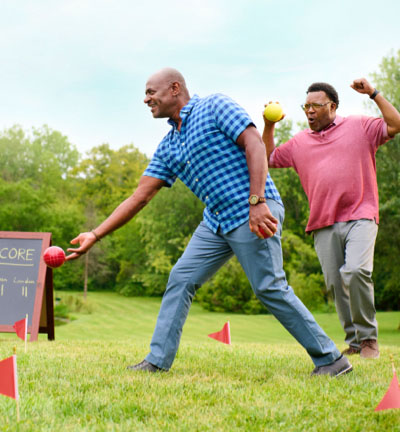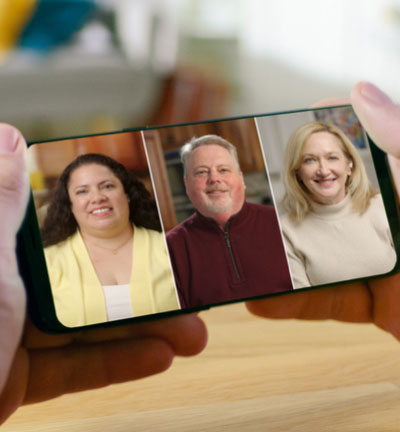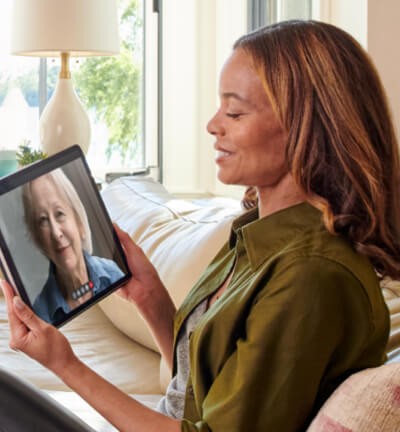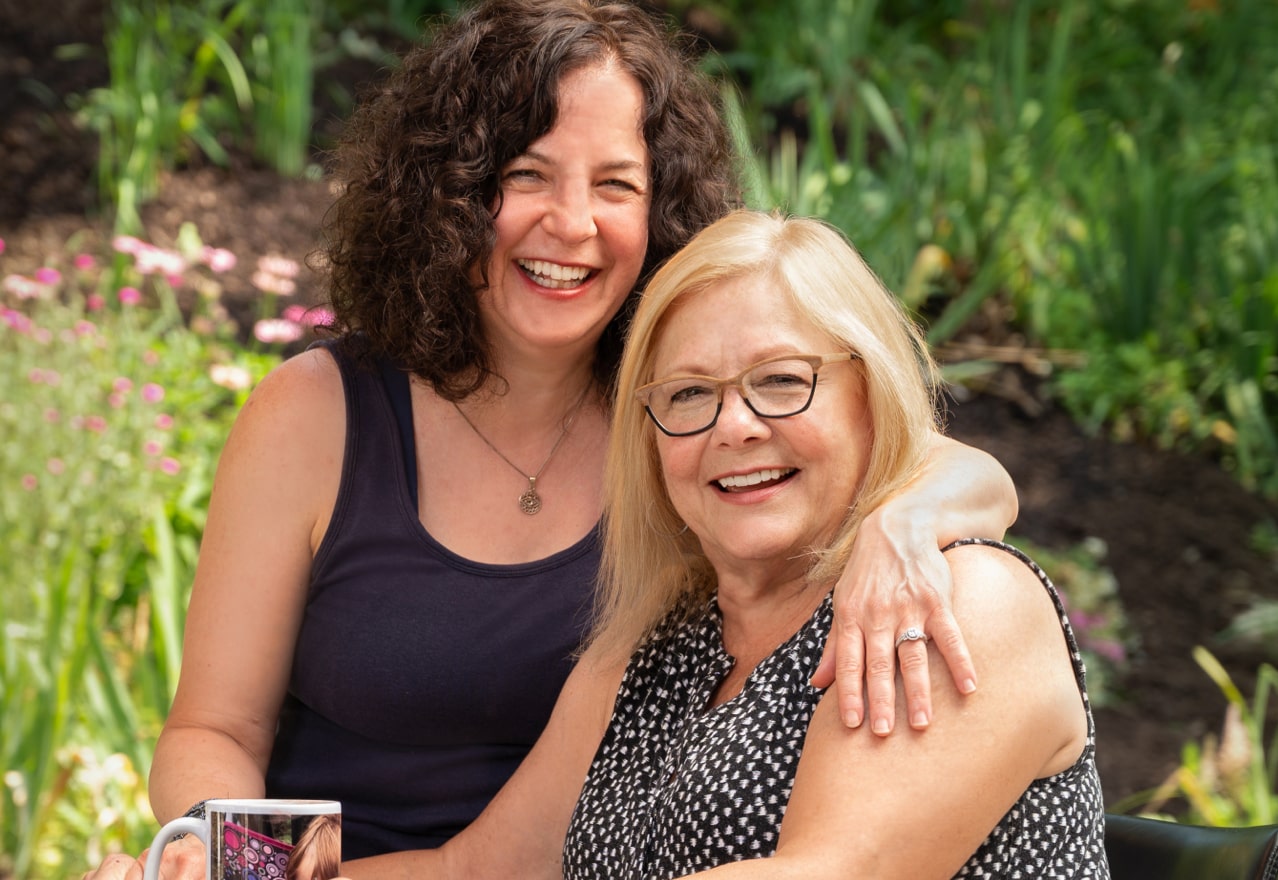If you feel overwhelmed as a caregiver, remember to practice self-care. These tips may help!
Being diagnosed with myasthenia gravis (MG) can be life-changing—certainly for the people living with it, but also for their supporters. As a supporter, not only are you navigating the emotions of seeing your loved one with this disease but you’re also taking on new responsibilities that you may not have seen coming. From taking on extra chores to helping keep track of doctor appointments to just being a shoulder to lean on, it’s understandable if you feel you’re carrying a lot of weight.
This is why it’s important for caregivers to stay mindful of preventing burnout. Practicing your own self-care may enable you to feel physically and mentally healthier, and to care even better for your loved one. The checklist below may be a handy resource for when you need a quick reset.
We spoke with three caregivers for people living with MG—Diane,* Mary and Christian—who know what this journey is all about. While they’ve each felt overwhelmed at various points in their caregiving journey, they’ve discovered methods that have helped them manage both their caregiving duties and their own well-being. The following tips may be helpful for MG supporters looking to strike a balance between the two.
1. Communicate, communicate, communicate
First and foremost, having an open line of dialogue with your loved one may be very important. Christian emphasized this as he described how he supports his wife, Vanetta,* who lives with MG.
“It’s all about communicating,” he said. Especially when it comes to splitting up household responsibilities or helping with something unexpected when Vanetta needs a break, Christian explained that clear communication with his spouse helps ensure not only that she’s taken care of, but that he’s taking care of himself as well by making time for working out or other outlets that support his well-being.
3. Pursue a passion with your loved one
Solo hobbies can be great, but shared ones may be beneficial, too! Mary, a retiree, noted that in spending so much time with her husband, John,* who lives with MG, they’ve discovered many shared interests. In addition to caring for John, one of the ways she cares for herself is by having fun alongside him—giving focus to their personal relationship rather than just the caregiving one.
We are both supportive to each other, so I think that helps.
“We like a lot of the same things, and we are both supportive to each other, so I think that helps,” Mary said. She went on to explain that music, in particular, relaxes both her and John, and she recalled a time when they played music videos on repeat while John was in the hospital.
5. Recognize the changes that have impacted you
A significant part of being a caregiver is accepting the transition from life without MG to life with MG. All three caregivers mentioned the learning curve of figuring out what MG is all about and how to care for someone with it, as well as the importance of acknowledging what has changed and how it has impacted their daily living.
“It’s more the mental aspect,” Mary said, reflecting on areas she has struggled with most. “You need to adjust to things not being the way they used to be.”
Practicing that acceptance with yourself may help relieve tension or feelings of burnout. “This is not a normal life that most people have to deal with,” Christian pointed out, emphasizing the need to recognize the unique situation you’re in and prioritize self-care as needed.
Feeling the freedom to ask for what you want as a caregiver is so important.
Diane expressed a similar sentiment as she described how she strikes a balance between caring for her wife and caring for herself. “Feeling the freedom to ask for what you want as a caregiver is so important. Do not feel guilty,” she said. “[Our loved ones] do not want to feel like a burden. If you’re asking for what you need, that neutralizes things for them and it’s good for us.”
9. Empower your loved one
While many responsibilities may fall on you as the caregiver, the person who’s living with MG likely has their own areas they want to take charge of as well. Encourage them to continue feeling comfortable owning the aspects of their care that they want to handle, whether that means self-advocacy at doctor appointments or any of these self-driven care tips. Make sure you understand which areas they’re confident in so you’re not taking on more than you need to! Christian said he’s familiar with how to maintain that balance with Vanetta: “She is very strong. She will push through as much as she wants.”
10. Lean on your loved one
Finally, don’t forget that the loved one you’re caring for is likely a comforting voice of support as well. For the same reasons that overall communication may be valuable, taking your caregiving hat off and simply getting quality time with your loved one who has MG may help you to de-stress.
Diane described her relationship with Kathy as the foundation from which she’s able to manage her well-being as a caregiver. “We have this love and respect for each other. I still get frustrated and overwhelmed sometimes, but if you have that foundation, a lot of things can be worked out,” she explained.
As you continue your caregiving journey and expand your caregiver toolkit, download the checklist below, which may help you identify signs of burnout and additional self-care activities to consider.











